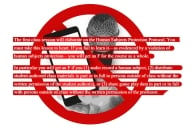You have /5 articles left.
Sign up for a free account or log in.
Ph.D. programs in economics are built on a common core of courses taken by students of a variety of specialties and philosophies within the field. In theory, this core represents must-know material for everyone in the field. But is it as relevant as it should be? And could it be discouraging creativity?
Those are questions posed by papers presented Friday in Denver at the annual meeting of the American Economic Association.
One paper represents the views of graduate students at leading doctoral programs who were brought together by the Committee on Economic Education (with support from the Teagle Foundation and other groups) to consider whether the core is as effective as it might be. The graduate students found plenty of room for improvement. (The students were from Columbia, Northwestern, and Princeton Universities: the Massachusetts Institute of Technology; and the Universities of Chicago, Pennsylvania and California at Berkeley.)
They offered suggestions for changes in each of the three main parts of the core: macroeconomics, microeconomics and econometrics -- with many of the suggestions broadly focused on issues of relevance.
Students described themselves as “happiest” with the micro portion of the core. But students noted “a blurred understanding of the rationale for using seemingly unrealistic assumptions and models” and said that they would prefer models that relate in clear ways to concrete problems.
The lack of application was seen as a greater problem in macro courses, with the paper noting that “students come out of their first year macro sequences frustrated by the lack of context…. They find it difficult to relate what they learn in the courses to the real-world economy.”
Macro should focus more on real economic institutions and policies and less on abstract models, the students concluded.
With regard to metrics, the students noted that computing has “removed many of the constraints on empirical research” faced by previous generations -- and that this advance suggests that a shift would be appropriate. Rather than trying to produce “econometric theorists,” graduate courses should focus on training “practitioners (and consumers) of econometrics,” the students said.
In a related paper, David Colander, a professor of economics at Middlebury College, argued that what the core really needs is “more creativity.”
He offered a series of suggestions for graduate programs, some of which he acknowledged would be seen as “radical”:
- Professors could use the core to introduce students “to the wide range of cutting-edge techniques and approaches” used in the field, not just as a time to teach “a specific set of techniques.”
- In a recommendation similar to those of the students, professors were urged to add context to the core courses, perhaps through creating a section of each core course focused on how various techniques could actually be used.
- Programs could start a “creativity day” each semester in which courses are called off and students and faculty work together on different kinds of economic problems that are of interest, but that don’t come up in the standard curriculum.
- Departments should organize more coffee hours and beer nights.








